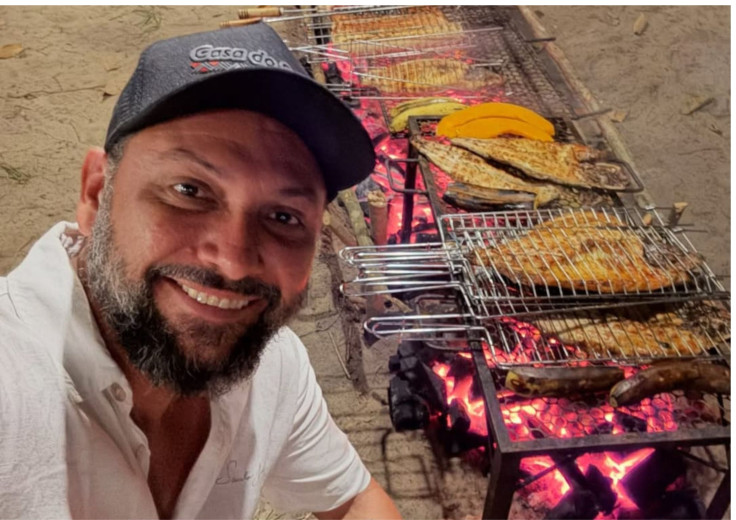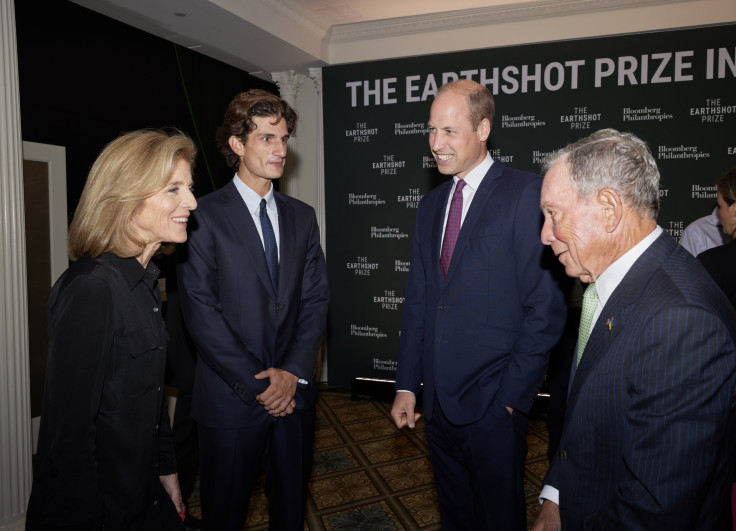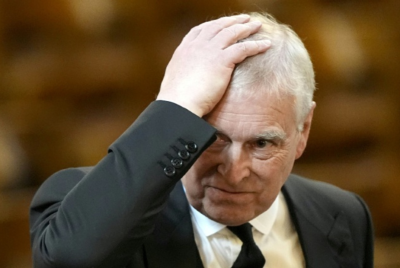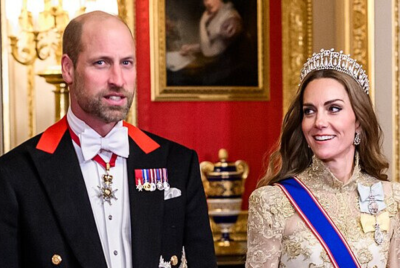Brazilian Chef Rejects Prince William's Vegan Banquet: 'It's Like Asking Iron Maiden To Play Jazz'

KEY POINTS
- Chef Saulo Jennings was invited to cater the Earthshot Prize banquet in Rio de Janeiro on 5 November.
- Organisers told him the entire menu must be vegan, prompting him to withdraw.
- The Earthshot team said Prince William was not involved and that the menu followed sustainability guidelines.
When Brazilian chef Saulo Jennings received an invitation to cook for an heir to the British throne, he imagined serving dishes that reflected the heart of his homeland.
Jennings, known for his deep respect for Amazonian ingredients and sustainable cooking, had one clear vision: to present the pirarucu, a massive river fish that has become a symbol of ecological recovery in the Amazon.
But when organisers of the Earthshot Prize told him the menu for the 5 November awards ceremony in Rio de Janeiro had to be entirely vegan, Jennings balked. What began as a dream opportunity quickly turned into a cultural standoff over what sustainability really means.
'It's like asking Iron Maiden to play jazz,' Jennings told The New York Times. 'It was a lack of respect for our culinary traditions and for the Amazon itself.'
The Earthshot Banquet and a Cultural Clash
Founded by Prince William in 2020, the Earthshot Prize honours innovation in environmental protection. This year's event, held at Rio's futuristic Museum of Tomorrow, will host about 700 guests, including heads of state, scientists and climate advocates.
For Jennings, being chosen as caterer was both an honour and a chance to show that sustainability is more complex than simply removing animal products from a menu.
He said he initially thought there had been a misunderstanding. He offered to include vegan options but explained that excluding fish altogether would erase a central part of Amazonian identity.
When organisers confirmed the vegan requirement, he began developing plant-based dishes inspired by local produce such as cassava root, jambu leaf and Brazil nuts. By then, however, negotiations had broken down and he was replaced as caterer.
'I have nothing against vegans or British people,' Jennings said. 'But I don't want to abandon my culinary mission. My work has always been about balance, about honouring what the forest and rivers give us.'

Sustainability, Amazon Style
Jennings's frustration stems from more than pride. For years, he has joined community-led efforts proving that sustainability and tradition can coexist. The pirarucu, once endangered by overfishing, has rebounded thanks to conservation programmes that regulate when and how it is caught. The fish now sustains entire river communities and offers an alternative to deforestation.
'We eat whatever the forests give us, whatever the rivers give us,' Jennings told The New York Times. 'Some days it's fish, other days it's nuts and açaí. That's what real sustainability looks like.'
His rejection of the Earthshot offer made national headlines in Brazil. Many saw the vegan rule as a slight to local culture, especially given that the Amazon is not just a global carbon sink but also a living kitchen of biodiversity.
Environmental advocates argue that sustainable fishing, when responsibly managed, should be seen as part of the solution to climate change rather than part of the problem.
Prince William Not Involved in Menu Choice
A source close to the Earthshot organisers later said Prince William himself had no role in the menu decision. The organisation traditionally requests vegetarian menus at its events as part of its environmental commitment.
Jennings, however, maintains that excluding local staples such as fish contradicts the very spirit of sustainability the prize seeks to promote.
Despite the disagreement, the chef remains philosophical. 'Maybe it just wasn't meant to be,' he said. 'I still believe in what I do — teaching people that respecting the environment doesn't mean rejecting it.'
© Copyright IBTimes 2025. All rights reserved.





















